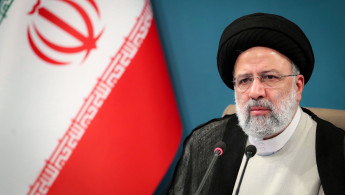Iran will boost ties with Russia 'at all levels', after Putin's China set-back
Iran's president has said Tehran is determined to boost ties with Russia "at all levels", as a group of countries generally opposed to US foreign policy met in Uzbekistan.
President Ebrahim Raisi confirmed Iran was open to deeper ties with Russia, which comes after an apparent snub of Moscow by China at the Shanghai Cooperation Organisation in Samarkand.
"Our relations are not ordinary; they are of a strategic nature. Iran wishes to expand its strategic relations with Russia and all political, economic, trade, and aerospace areas," he told Putin, according to Iran International.
"The relationship between countries that are sanctioned by the US, such as Iran, Russia or other countries, can overcome many problems and issues and make them stronger," Raisi told Putin in the meeting.
"The Americans think whichever country they impose sanctions on, it will be stopped, their perception is a wrong one."
Both countries are subject to US sanctions.
In a meeting with his Chinese counterpart Xi Jinping on Thursday, Putin acknowledged Beijing's "questions and concerns" about Russia's invasion of Ukraine.
This was widely seen as ripple of discord between the two countries over the war in Ukraine which has sparked global economic issues and pushed up fuel prices.
China and India have been criticised for snapping up cheap Russian oil and gas, but have offered little support beyond symbolic statements at the UN.
Iran, another ally of Russia, has been more forthright in its backing of Moscow.
It has reportedly supplied Moscow with drone technology, a significant sign of support for beleaguered Russia which has received no real material backing from Beijing.
The Shanghai Cooperation Organisation is widely seen as a Chinese-led counterweight to US foreign policy in Asia, aimed at stamping out "terrorism" and promoting trade.
Others have described it as a 'dictators' club' - which includes China, Russia, Iran, and Kazakhstan - intended at creating a 'New World Order' in the region where tight security and economic growth trump human rights.
The leaders of non-members Belarus and Turkey also attended.





 Follow the Middle East's top stories in English at The New Arab on Google News
Follow the Middle East's top stories in English at The New Arab on Google News


